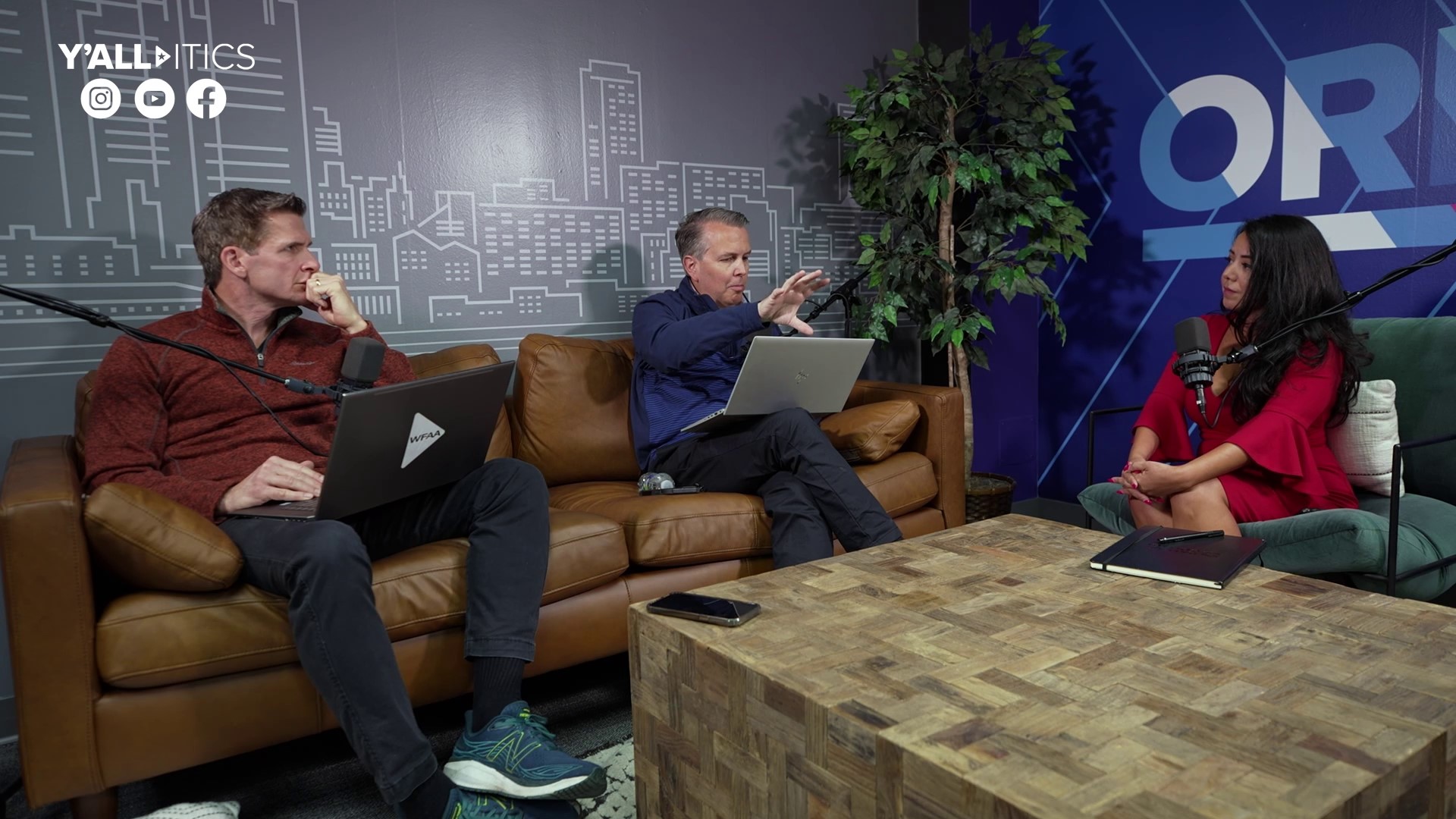DALLAS — In the coming months, anyone in Texas might need to show their passport to police and prove citizenship if local or state officers ask.
This is the result of Senate Bill 4, passed by the Republican-led majorities in the state House and Senate, which makes it a state crime to enter Texas illegally from a foreign country.
Democrats are concerned that the legislation will also let local and state police ask people to prove their citizenship. Those who cannot can be charged with a misdemeanor and potentially deported.
“It’s not just going to be people who aren’t supposed to be here questioned. You’re going to have a lot of American citizens who are going to have their citizenship contested and challenged, some of those people dragged down to the police stations if they can’t provide that documentation right away. So that’s what you’re going to start seeing on the street,” said U.S. Rep. Joaquin Castro, D-San Antonio in an interview for the Y'all-itics political podcast.
Congressman Castro said he will contact the Biden Administration to ask the U.S. Department of Justice to intervene in this state’s soon-to-be law. Immigration law is a federal responsibility not a state one.
“It’s seriously concerning, and we know it’s clearly unconstitutional,” said state Rep. Victoria Neave Criado, a Dallas Democrat and chair of the Mexican American Legislative Caucus.
“I anticipate once the governor signs it, there will be [law]suits coming forward," she continued. "LULAC has also announced they're going to file suit. We met with several of the Mexican consuls here in Dallas, as well as 11 Mexican consuls from across the state. In partnership, we will be putting together informational and townhalls across the state to educate our community about the impact of that Senate Bill four.
In an interview for Y’all-itics, Neave Criado revealed that she always carries her U.S. passport, worrying police might ask her to prove her citizenship.
“Why should we as Americans be questioned about our citizenship when we have a right to be here as well," she asked.
It is uncertain whether local police agencies in Texas will enforce the legislation after Abbott signs it into law.
“I believe many of them will. If this law goes into effect, we're hoping that some will not,” added Neave Criado.
Arizona passed something similar in 2010 and the Supreme Court struck down part of it.
But Republican state Senator Paul Bettencourt said the Texas legislation will test this again with a now more conservative court.
“This a real conundrum. What do you do when the federal government walks away from building the wall and from enforcing border law. And that’s what’s happened,” Bettencourt said in a recent interview with WFAA's Inside Texas Politics. “You’ve got have a legal immigration system and if Texas has to step up and challenge all of this, we’re going to do it.”
“Let's give some context to this,” Castro added. “Within the last month or six weeks, the most powerful Republican PAC in the state of Texas that contributes to all the statewide officeholders, and a lot of state legislators, met with the most notorious white supremacists in the United States of America. And so, to me, this is who's been setting the agenda during the special sessions in Austin. So, we end up with the kind of legislation, this racial profiling legislation that we've got now that the governor is about to sign into effect.”
Border Patrol says it caught more migrants this year than ever before.
Politically, this situation remains red meat for Republicans and a vulnerability for President Biden.
But whether Texas can legally address it remains a question for the courts.

